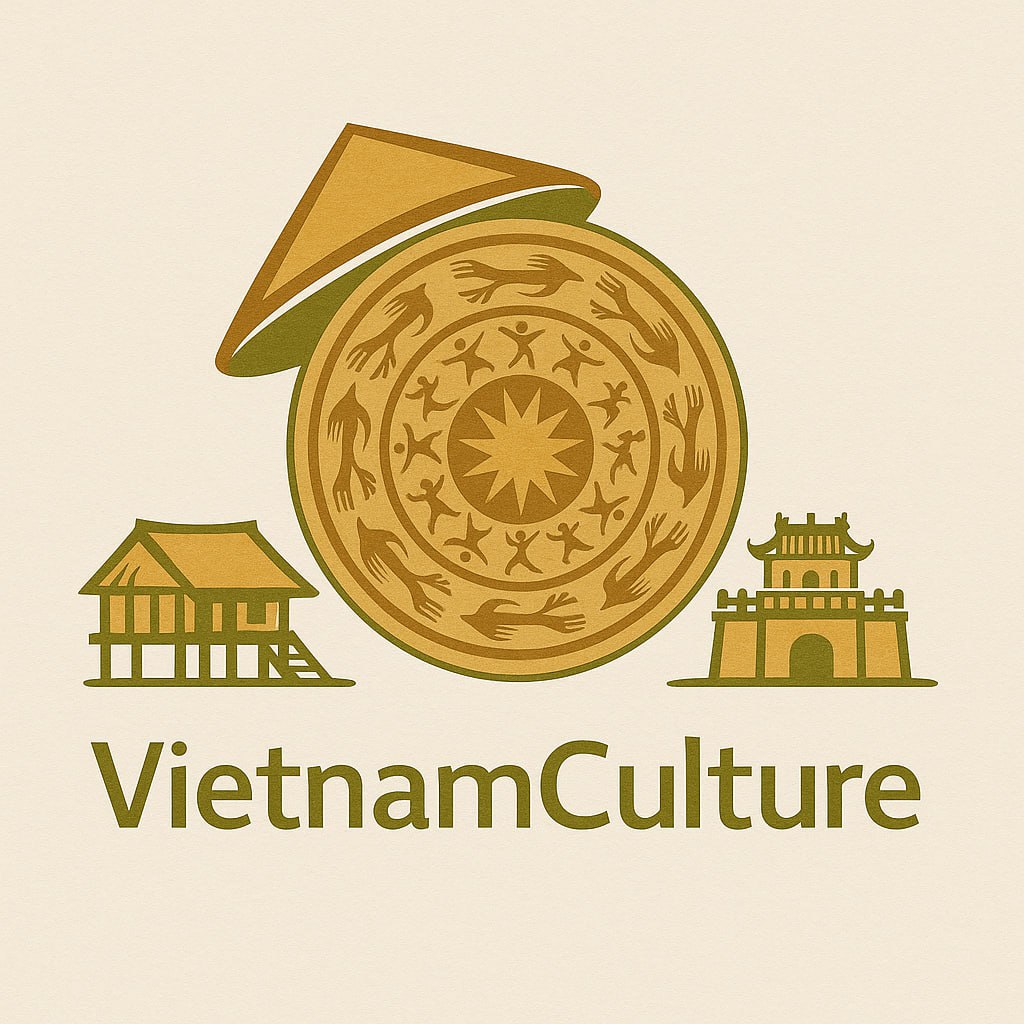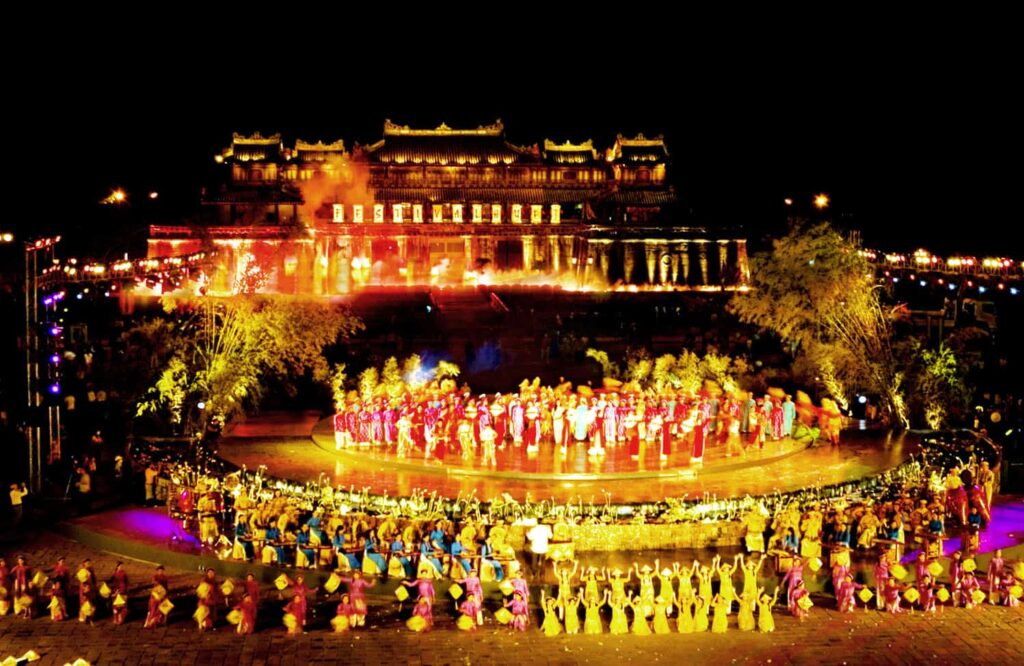Vietnam is not only famous for its stunning landscapes, mouthwatering cuisine, and vibrant cities, but also for its deeply rooted culture, reflected through countless festivals held across the country throughout the year. From religious ceremonies to traditional folk celebrations, Vietnamese festivals offer travelers a rare glimpse into the heart and soul of the Vietnamese people.
Whether you’re looking to immerse yourself in spirituality, witness age-old rituals, or simply enjoy the festive atmosphere, participating in one of these festivals in Vietnam is a truly enriching experience.
In this comprehensive guide, we will explore some of the most prominent Vietnamese traditional festivals, their significance, and how they shape the cultural identity of the nation.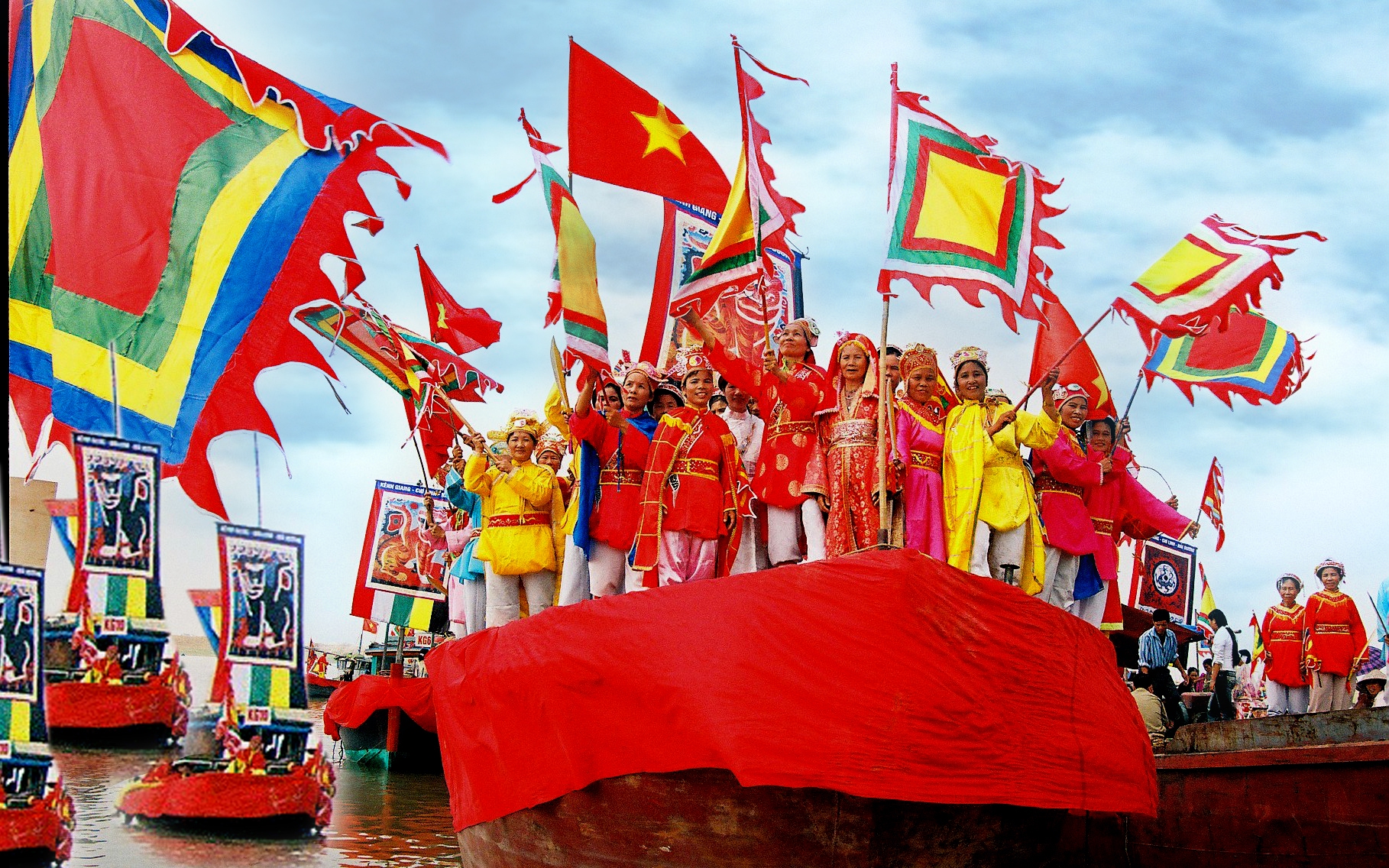
Why Vietnamese Festivals Are Essential to the Country’s Cultural Identity
Festivals are more than just celebrations—they are powerful expressions of belief, unity, gratitude, and historical remembrance. In Vietnam, these festivals:
- Preserve cultural values handed down over generations
- Strengthen family and community bonds
- Honor ancestors and national heroes
- Encourage tourism and economic development
- Reflect the diversity of Vietnam’s 54 ethnic groups and their unique customs
Throughout the country, thousands of festivals—both secular and religious—are held annually, with each region showcasing its own distinctive heritage.
1. Tết Nguyên Đán (Lunar New Year) – The Biggest Vietnamese Festival
- When: Late January to early February (1st day of the lunar calendar)
- Where: Nationwide
Tết, or Vietnamese Lunar New Year, is undoubtedly the most important and widely celebrated of all Vietnamese festivals. Marking the arrival of spring and a new year, Tết is a time for family reunions, ancestor worship, and fresh beginnings.
Key Traditions:
- Cleaning and decorating homes with flowers like peach blossoms and kumquats
- Preparing traditional foods such as bánh chưng (sticky rice cake)
- Giving red envelopes (lì xì) to children
- Visiting temples and pagodas to pray for good fortune
Tết lasts several days, with bustling markets, vibrant decorations, fireworks, and cultural performances creating an unforgettable festive atmosphere.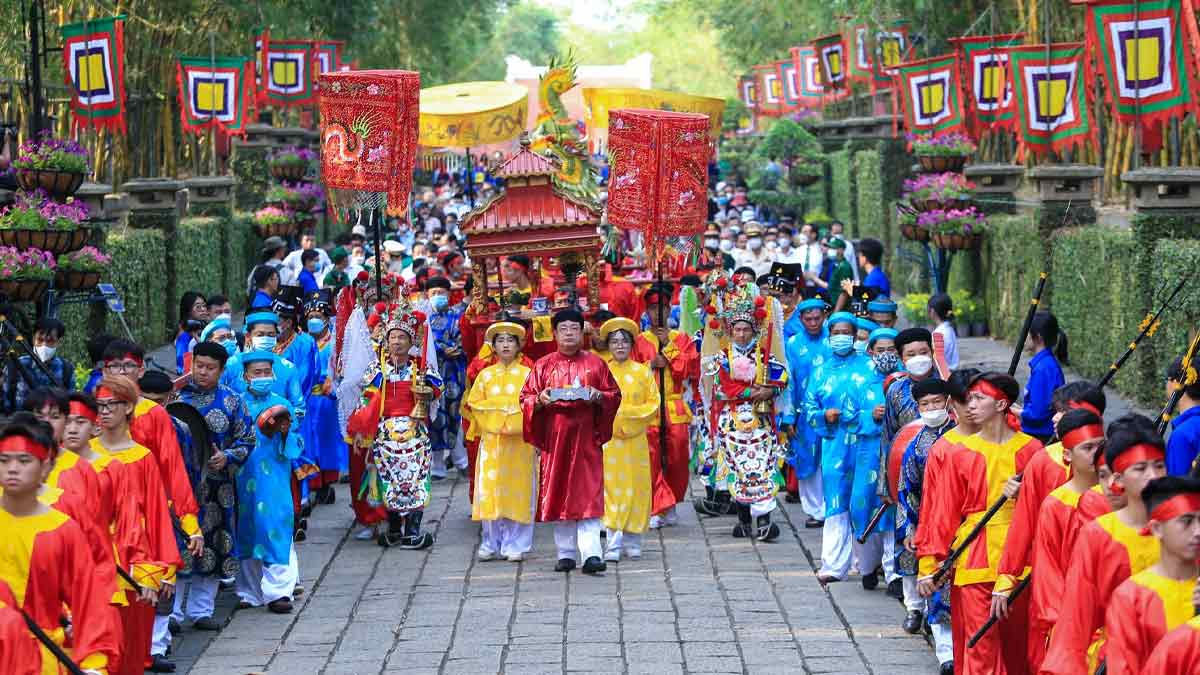
2. Hùng Kings’ Temple Festival – Honoring the Founding Fathers
- When: 10th day of the 3rd lunar month
- Where: Phú Thọ Province, Northern Vietnam
This is one of the most sacred Vietnamese heritage festivals, commemorating the Hùng Kings—the legendary founders of the Vietnamese nation. The festival is both a state and spiritual event that reflects Vietnam’s strong sense of ancestral reverence.
Highlights:
- Grand processions and incense offerings at the Hung Temple Complex
- Folk games, traditional music, and lion dances
- Ceremonial rituals attracting millions of participants
As a public holiday, the Hùng Kings’ Temple Festival underscores the Vietnamese people’s gratitude toward their ancestors and national unity.
3. Perfume Pagoda Festival (Lễ hội chùa Hương) – Pilgrimage to the Land of Buddha
- When: From the 6th day of the 1st lunar month to the end of the 3rd lunar month
- Where: Hương Sơn, Mỹ Đức District, Hanoi
The Perfume Pagoda Festival is one of the longest and most spiritually significant festivals in Vietnam. It attracts hundreds of thousands of Buddhists and tourists who make a pilgrimage to the Perfume Pagoda nestled in the limestone mountains.
Experiences to Expect:
- Boat ride on the scenic Yến River
- Hiking up to Huong Tich Cave (main pagoda)
- Participating in prayers and rituals to seek blessings for the new year
The festival blends natural beauty, cultural heritage, and religious devotion into a unique spiritual journey.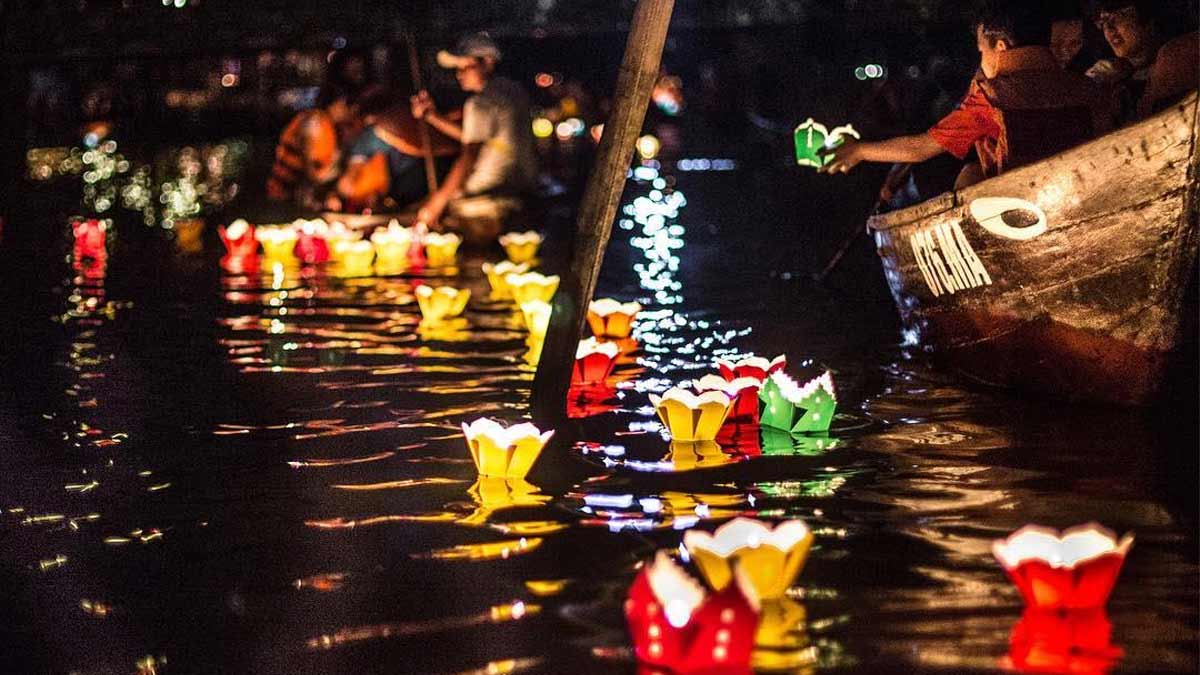
4. Lim Festival (Hội Lim) – The Heartbeat of Quan Họ Folk Singing
- When: 12th to 14th day of the 1st lunar month
- Where: Lim Village, Bắc Ninh Province
Recognized as a UNESCO Intangible Cultural Heritage, Quan Họ folk singing is brought to life every spring during the Lim Festival. It celebrates the artistic and spiritual life of the people in the Red River Delta.
Festival Features:
- Performances of Quan Họ duets by liền anh and liền chị on boats and hilltops
- Traditional games like bamboo swings, wrestling, and cooking competitions
- Religious rituals at communal temples and pagodas
For music lovers and culture seekers, Lim Festival offers an intimate experience of Vietnam’s musical heritage.
5. Huế Festival – Where Vietnam’s Imperial Past Comes Alive
- When: Every two years (typically April or June)
- Where: Hue City, Thừa Thiên–Huế Province
Set in Vietnam’s former imperial capital, the Huế Festival is a large-scale international cultural event that celebrates royal traditions, artistic expression, and intercultural dialogue.
Activities:
- Reenactment of royal court ceremonies
- Ao Dai fashion shows, dragon boat races, and street parades
- Performances by local and international artists
- Traditional games and exhibitions
Huế Festival is a vibrant showcase of Vietnam’s history and its continued cultural relevance.
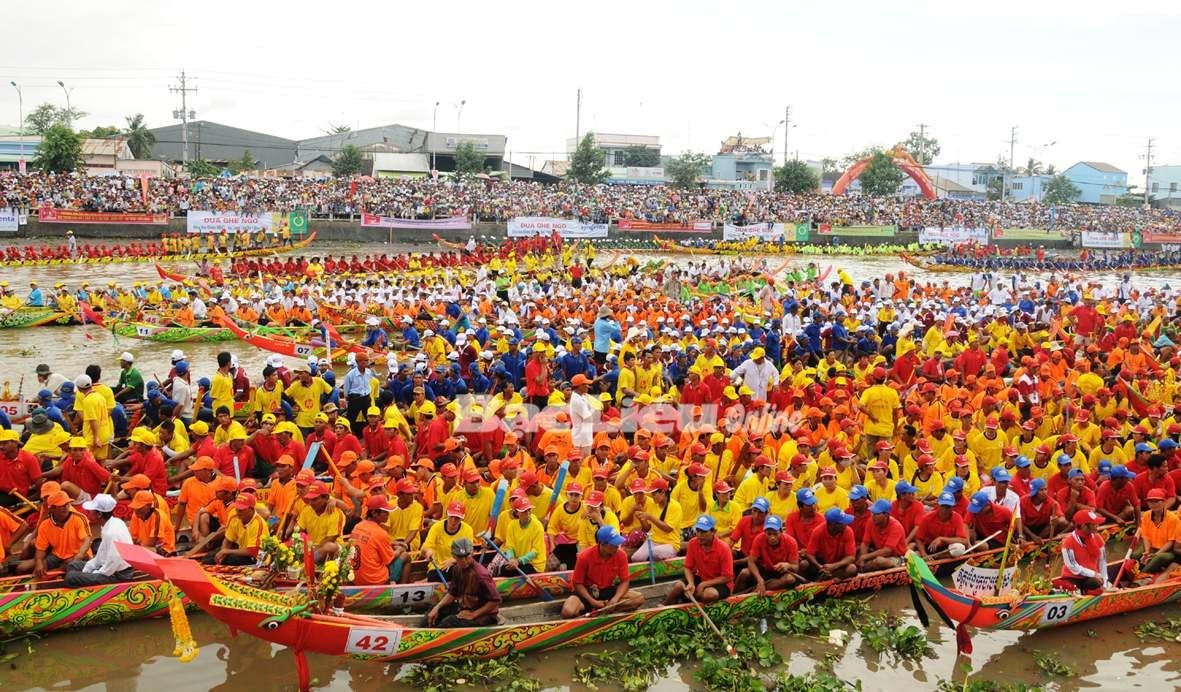
6. Đà Nẵng International Fireworks Festival (DIFF) – Lighting Up Vietnam’s Night Sky
- When: Late April to early July (varies annually)
- Where: Đà Nẵng City
While most Vietnamese festivals are rooted in tradition, the Đà Nẵng International Fireworks Festival is a celebration of art and modernity. It attracts teams from around the world who compete in stunning pyrotechnic displays along the Han River.
Why It Stands Out:
- Artistic themes promoting peace and global friendship
- Live music, culinary events, and cultural showcases
- Tourists can combine the festival with beach holidays and heritage tours
DIFF exemplifies how Vietnam is blending tradition with contemporary celebration.
7. Lady of the Realm Festival (Lễ hội Bà Chúa Xứ) – Southern Vietnam’s Spiritual Celebration
- When: 23rd to 27th day of the 4th lunar month
- Where: Núi Sam, Châu Đốc, An Giang Province
This festival is a blend of folklore, spirituality, and local belief systems. Pilgrims travel from across the country to the temple of Bà Chúa Xứ to seek health, fortune, and peace.
Unique Rituals:
- Bathing the sacred statue in perfumed water
- Processions and ceremonial music
- Lion dances and folk performances
Recognized as a national intangible cultural heritage, the festival reflects the deep-rooted beliefs of the southern Vietnamese.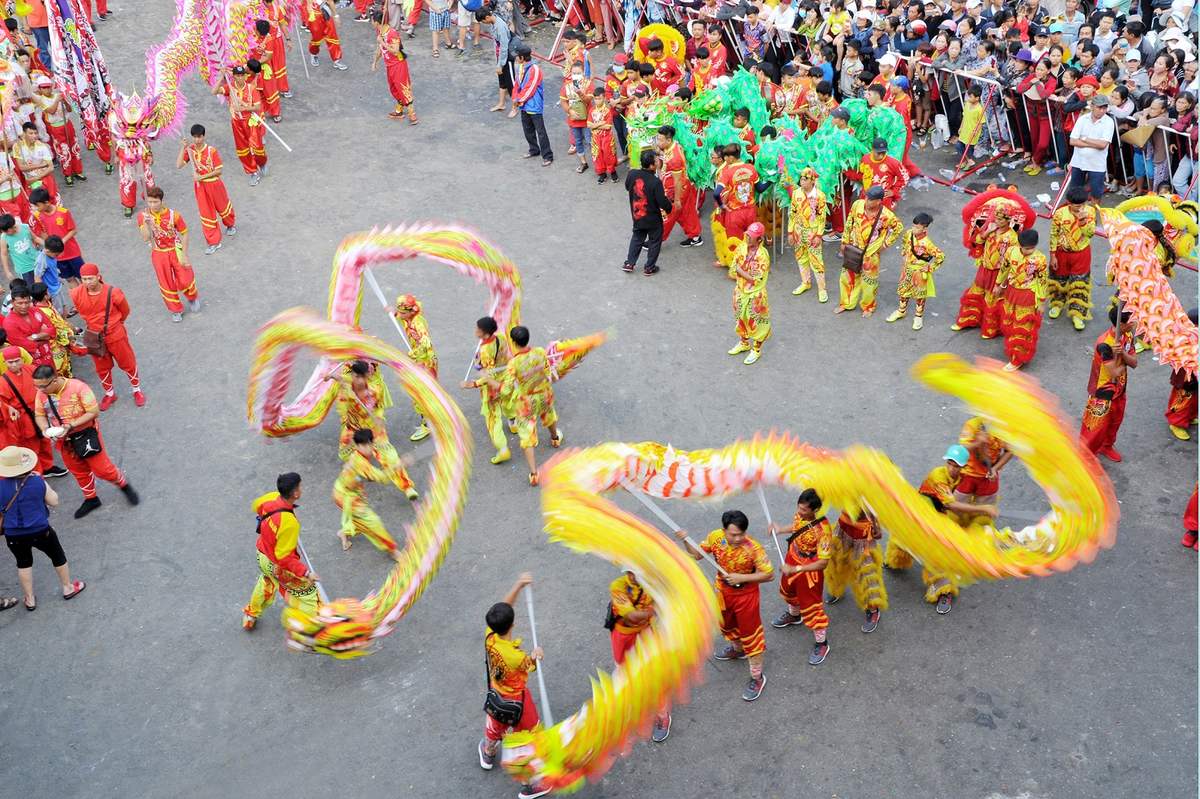
8. Mid-Autumn Festival (Tết Trung Thu) – A Magical Night for Children
- When: 15th day of the 8th lunar month (September/October)
- Where: Nationwide, especially vibrant in Hanoi and Hoi An
Also known as the Children’s Festival or Moon Festival, Tết Trung Thu is one of the most joyful Vietnamese festivals, celebrating family, unity, and the harvest season.
Must-See Traditions:
- Lantern processions and lion dances
- Mooncake offerings and storytelling
- Cultural performances and games for children
Hội An’s lantern-lit streets create an especially magical ambiance for this celebration.
9. Kate Festival (Lễ hội Katê) – Honoring Cham Culture
- When: Early October (1st day of the Cham calendar)
- Where: Ninh Thuận Province and Cham communities
Kate Festival is one of the most important events for the Cham ethnic group, honoring their deities and ancestors through vibrant rituals and cultural expressions.
Cultural Activities:
- Offering ceremonies at ancient Cham towers
- Cham traditional dances, music, and costumes
- Community feasts and spiritual rituals
It’s a rare chance to explore one of Vietnam’s oldest cultures through authentic festivities.
10. Gióng Festival (Hội Gióng) – Celebrating a Mythical Hero
- When: 6th to 8th day of the 1st lunar month
- Where: Sóc Sơn District, Hanoi
The Gióng Festival, another UNESCO-recognized intangible heritage, celebrates the legendary hero Thánh Gióng who defeated foreign invaders with supernatural strength.
Highlights:
- Traditional mock battles reenacting Gióng’s fight
- Processions with symbolic flags and weapons
- Offerings and communal prayers
This ancient legend comes to life through dynamic and symbolic performances, instilling national pride.
11. Po Nagar Tower Festival – Chăm Goddess Worship in Coastal Vietnam
- When: 20th to 23rd of the 3rd lunar month
- Where: Nha Trang, Khánh Hòa Province
This Vietnamese spiritual festival pays tribute to the goddess Poh Nagar, believed to protect the land and sea.
Festive Components:
- Flower and incense offerings
- Sacred music and dances
- Rituals for peace and prosperity
The festival is a unique blend of Cham spiritual heritage and coastal Vietnamese culture.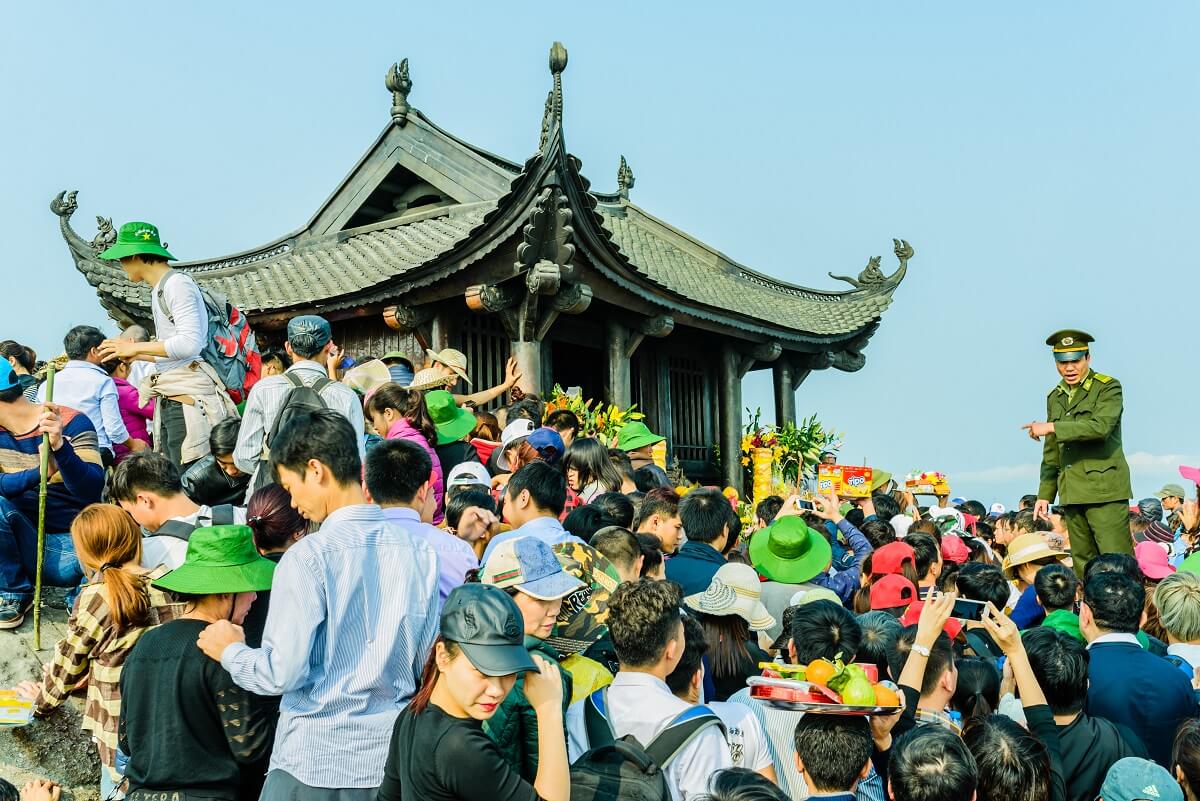
12. Hoa Lư Festival – Recalling Vietnam’s First Capital
- When: 6th to 8th of the 3rd lunar month
- Where: Hoa Lư, Ninh Bình Province
Dedicated to Emperor Đinh Bộ Lĩnh, who unified the country and founded the Đại Cồ Việt, this festival relives the country’s historic founding moments.
What to Expect:
- Traditional martial arts and archery
- Historical reenactments
- Ceremonial processions and local music
Located near the famous Trang An landscape complex, this festival is a perfect addition to a cultural trip to northern Vietnam.
Final Thoughts: Vietnamese Festivals – A Cultural Mosaic Worth Exploring
From ancient legends and religious devotions to modern spectacles, Vietnamese festivals are a celebration of life, identity, and continuity. They offer more than entertainment — they provide deep insight into the values, history, and heart of the Vietnamese people.
Whether you’re a history buff, spiritual seeker, culture enthusiast, or simply a traveler hungry for authentic experiences, timing your visit with one or more of these festivals will transform your journey into an unforgettable cultural odyssey with VietnamTour.
See more post: Vietnam traditions: Exploring the rich cultural heritage of a timeless nation
